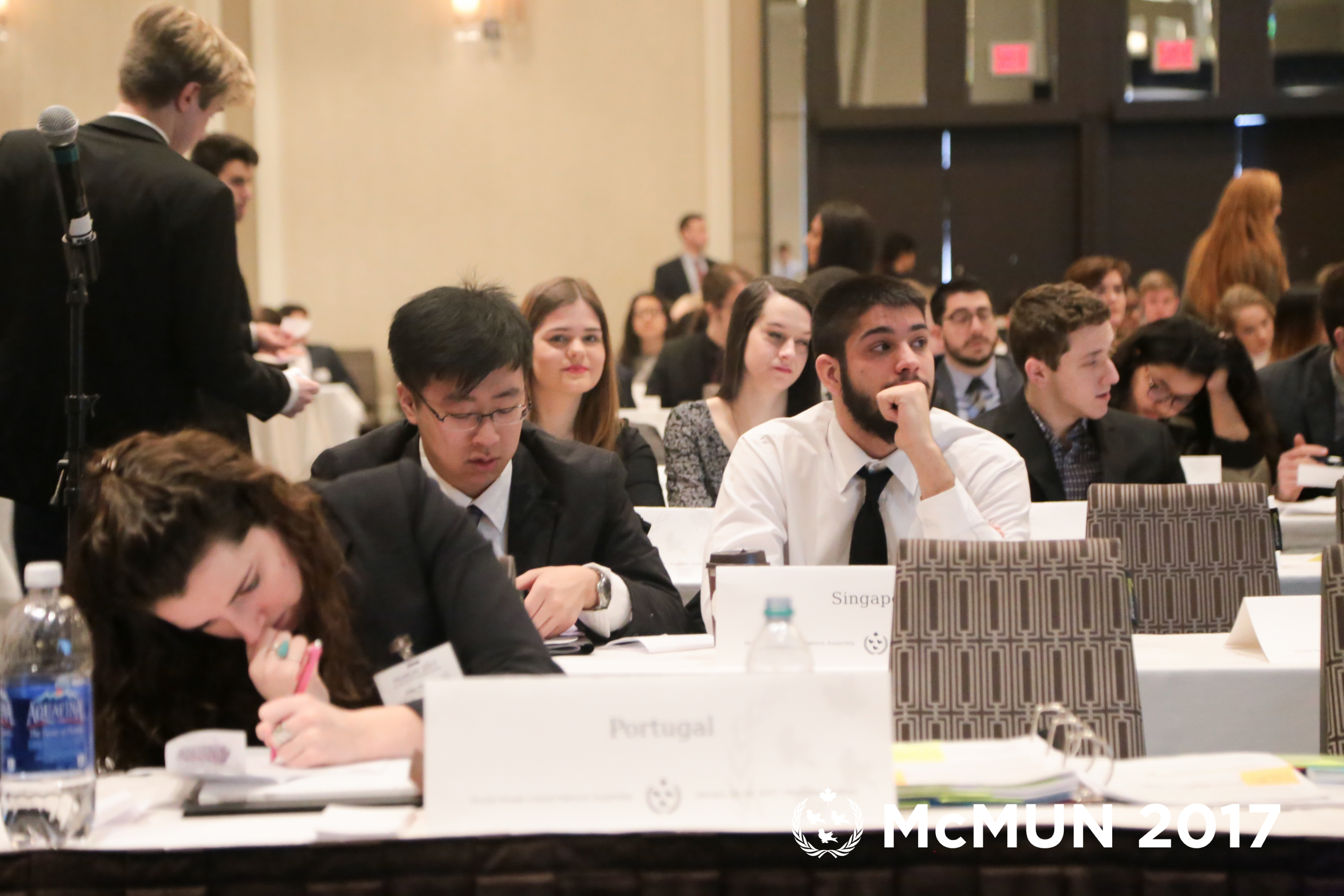Discussing the United Nations Security Council Committee with Vice Chair Aleksandra Busic-Conevska

Located in Salon 6, the United Nations Security Council (UNSC) emergency session of 2025 discusses how to approach a world thrown into chaos — where the international refugee crisis, terrorism, and sovereignty disputes are among the pressing issues that demand immediate and effective solutions. This is a fast-paced double delegation committee whose appeal lies in its possibility to incorporate theatrics and the interplay with other entities that are bound to change the course of the debate very often.
Aleksandra Busic-Conevska, Vice Chair for the United Nations Security Council, provides insight into her impressions on and expectations about this committee. Having experienced being in the shoes of a delegate back in high school, Aleksandra admits that she prefers being able to moderate the debate and listen to it rather than partake in the discourse herself. She notes that there is a remarkable difference between high school-level conferences and university-level conferences. “High school delegates are shyer, have less knowledge on political science and its applications, a shallower understanding of history than university-level delegates. The level of discussion can even be hard to keep up with if you’re not listening to every word.”
“I knew we would have top-tier delegates,” Aleksandra says upon being asked why she chose that committee, “To me, it’s really important to be able to see delegates that are efficient and effective. [The delegates in UNSC] are the ones that want to win awards, that want to be known. I like to see that fire in them.” According to Aleksandra, the delegates in her committee are all quite brilliant and she has high expectations of them.
Aleksandra believes that the social events held every night of the McMUN weekend help foster feelings of belonging to a group. “It’s like travelling with a group of people, you experience almost the same things together for 4 days in a row, and then by that time you have the same jokes and so much to share; you’re on the same page. That sense of community is one of the greatest things at McMUN.”
One of her greatest concerns about Model UN is that delegates tend to compartmentalise issues in the real world and the simulation mindset can take over, distracting them from the fact that there are real human beings going through the hardships taking the spotlight within these committees. “My fear is that they lose that awareness and enter the political world with a game-like mindset. I think that distance from political leaders is very common and I don’t want Model UN to be responsible for that, I want it to be responsible for passionate leaders. I want them to reconnect with their empathy through this experience.”
